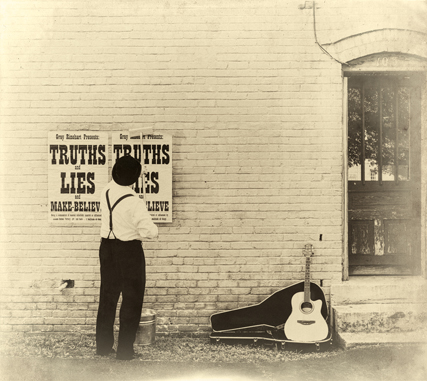Following up on a conversation I had with a friend at the last science fiction & fantasy convention I went to, I’ve been thinking about the relationship between truth and fact.

(“Bible Study,” by .:[ Melissa ]:., on Flickr under Creative Commons.)
Specifically, that truth and fact are not the same thing.
A fact is a provable assertion, something verifiable by applying an operational definition. A factual assertion will be true, or it cannot be considered factual. Truth, however, especially what we might call “capital-T truth,” is bigger, broader — higher and wider and deeper — than fact. It may be based on fact, but it may also be based on logic or intuition or revelation because truth goes beyond fact.
The conversation we had specifically dealt with Scripture, and the difficulty some people have with it. Within the Christian church, for instance, many believers seem unwilling or unable to face up to metaphors, translation issues, and other problems with the Biblical text. Their faith at times seems to be in the Bible itself — in what they believe is an infallible text — rather than in God.
On the other side of the divide are my atheist friends, some of whom are lightning-quick to mention errors or points of disagreement with the Biblical text. Indeed, some appear to use such things to justify their decision to deny even the possibility of God’s existence, action, and love for humanity.
In each case, the formula seems to be “If any part of the Bible is inaccurate or problematic, then the whole of the Bible cannot be trusted.” Some Christians go so far as to treat Jesus’s parables, his teaching stories, as if they described historical events because they cannot abide the thought of Jesus telling a story that might not be “factual” even though it illustrates a “truth.” On the other side, I understand that some atheists go so far as to claim that Jesus was not a real historical person, though I have not personally encountered anyone who voiced that opinion.
I wonder at the deeper motivations involved. Do my Christian brethren ignore problems because at heart they want to believe and any textual difficulties will shake their beliefs? In a similar way, do my atheist friends point out problems because at heart they do not want to believe and the textual difficulties provide them a ready excuse?
Regardless of the underlying reasons, many believers and atheists alike seem to want or expect or demand that the Bible be a book of facts that has some truth in it. That seems to me a shallow outlook; in my estimation, it’s more accurate to say the Bible is a book of truth that has some facts in it.
And to me that makes a world (if not a universe) of difference.














